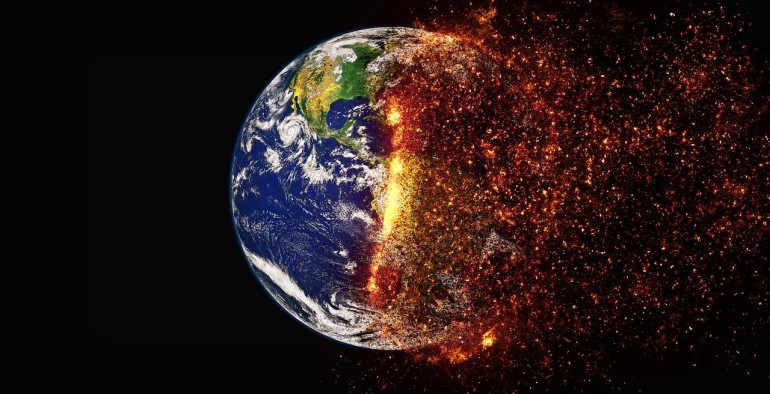Who is responsible for climate change? The global debate on responsibility
- By Ayesha Waheed --
- 28 Nov 2024 --
- 0 Comments
- Jeddah - Saudi Arabia
Translate In Arabic
November 27, 2024 - As the climate crisis intensifies, nations around the world are asking a pressing question: who should take the lead in the fight against climate change? The responsibility gap between developing and developed countries continues to hinder meaningful progress, raising concerns about the future of our planet.
Historical transmissions and current challenges
Developed countries have historically been the largest contributors to greenhouse gas emissions over decades of industrialization. Countries like the United States, China, and European countries have reaped the rewards of economic growth at the expense of environmental health. Meanwhile, developing countries like Bangladesh and Kenya are bearing the brunt of climate change while contributing little to global emissions.
This disparity has given rise to the principle of common but differentiated responsibilities (CDR), which says that while all countries must act, richer countries must bear a greater share of the burden. “We didn’t create this crisis, but we are paying the highest price for it,” says Maria Lopez, a climate activist in the Philippines.
What are developed countries doing?
Developed countries say they are leading efforts to combat climate change. The European Union has pledged to achieve carbon neutrality by 2050, while the United States has pledged significant funding to support global climate initiatives. In 2023, the Green Climate Fund received $11 billion from rich countries, but critics say that is not enough.
“Developed countries’ efforts often lack speed,” says Dr. Amir Hassan, a climate policy expert. “Although commitments are made, implementation is slow and emissions remain alarming.”
Developing countries demand climate justice
For developing countries, the fight against climate change is a matter of survival. These countries need financial and technological support to adapt to the effects of rising sea levels, extreme weather and dwindling resources. However, the promised annual contribution of $100 billion to the Green Climate Fund has not been fully implemented, leaving vulnerable countries without the tools they need to combat the crisis.
“Without adequate funding, we cannot build the infrastructure needed to protect our communities,” says Amina Oduya, Kenya’s environment minister. “This is not just about adaptation, it’s about equity.”
The way to cooperate
As the COP29 summit approaches, world leaders are under tremendous pressure to find concrete solutions. Proposals include:
Carbon tariffs to hold polluting industries accountable.
Technology sharing to provide developing countries with green innovations. Stronger legal frameworks to ensure countries meet their climate commitments.
A shared responsibility
Experts agree that cooperation is the only way forward. “Climate change is a global challenge and requires a unified response,” says Dr Hassan. Over time, balancing historical responsibility with future action will be essential to ensuring a sustainable planet for all.
To comment and like Please first login ..
Login / Register


